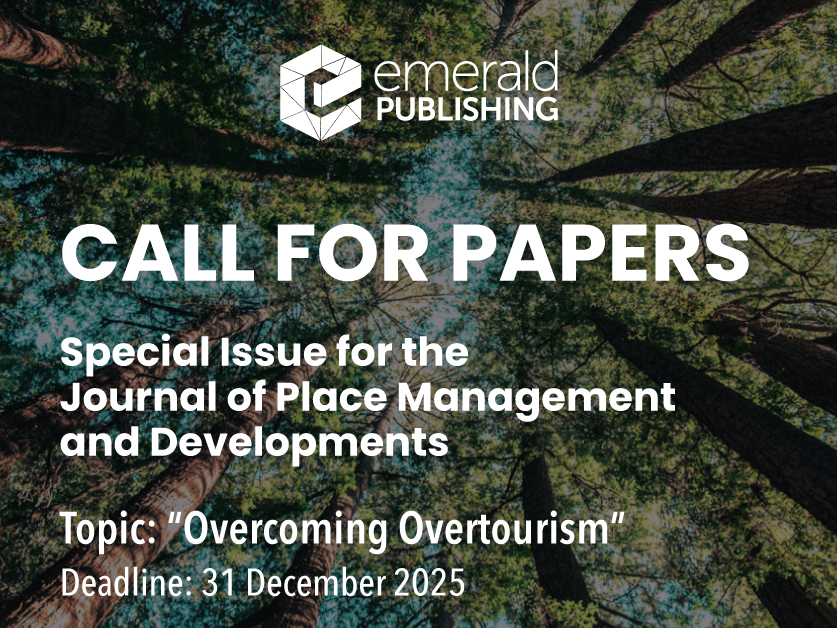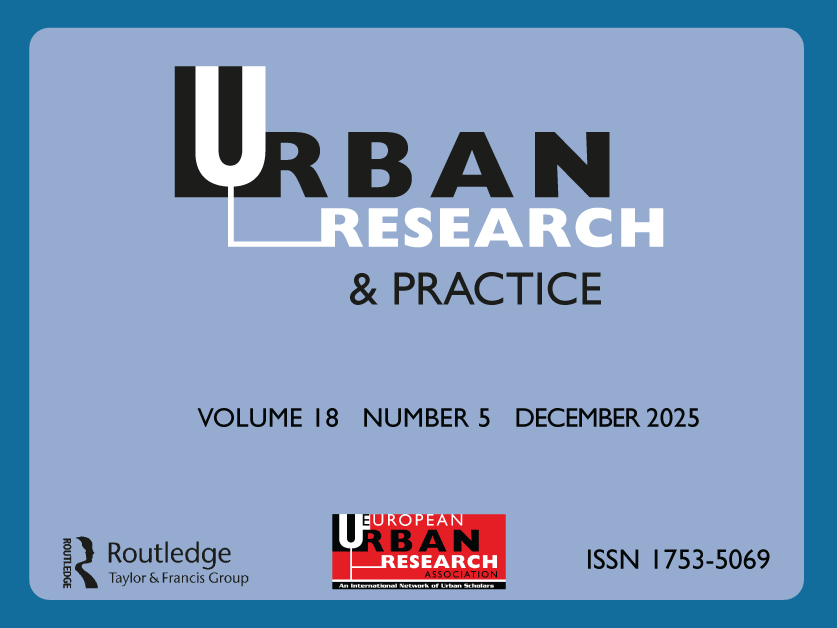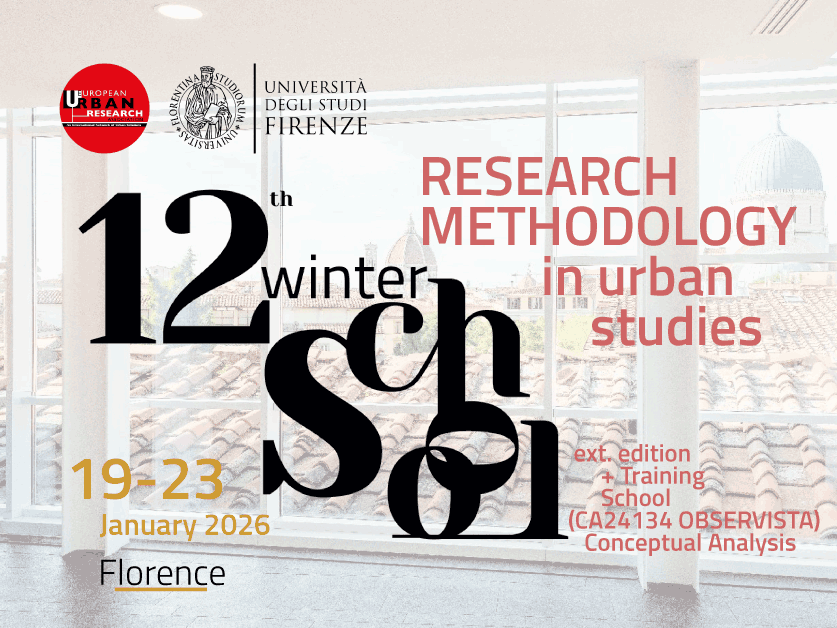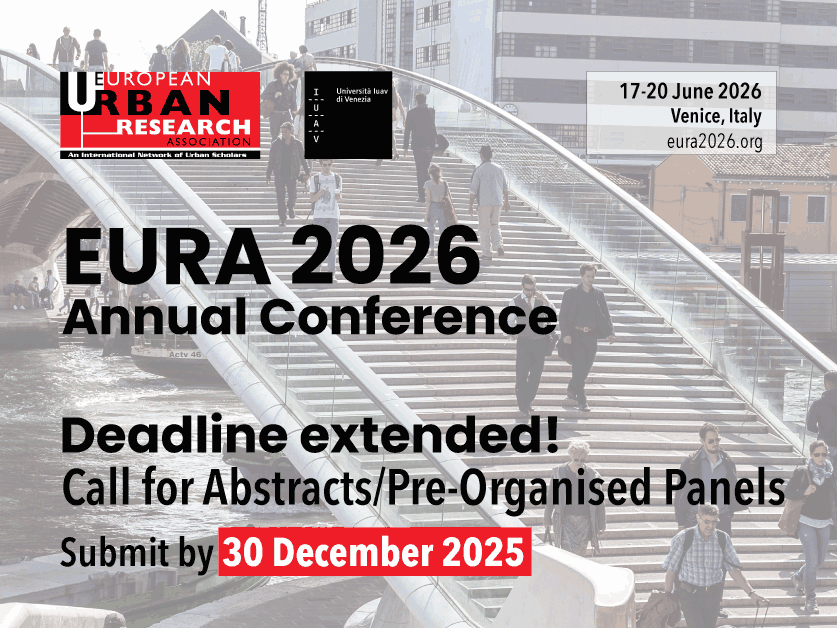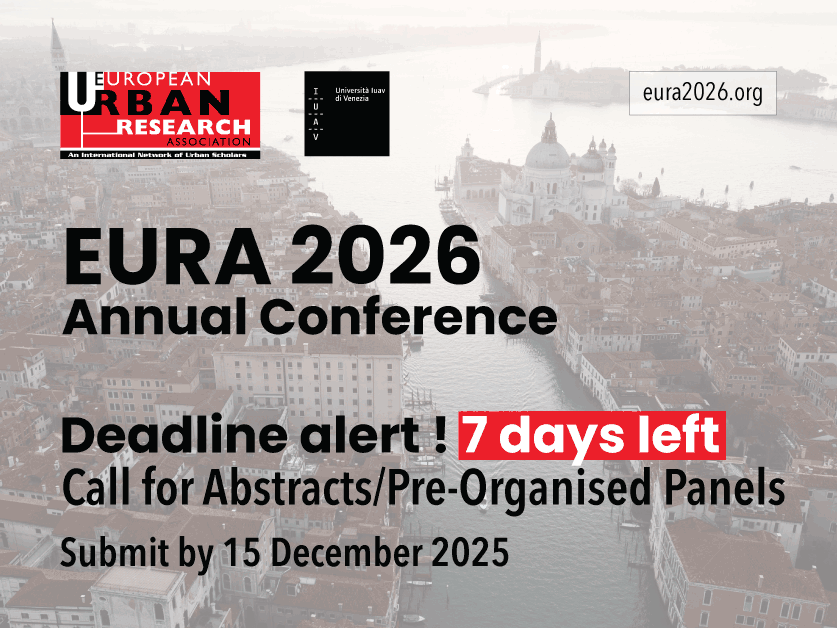
Bloomberg Philanthropies PhD Studentship in Cities – Call for Applications 2026
22/10/2025
#77 Defining Co-production in Planning: Why Clarity Matters
29/10/2025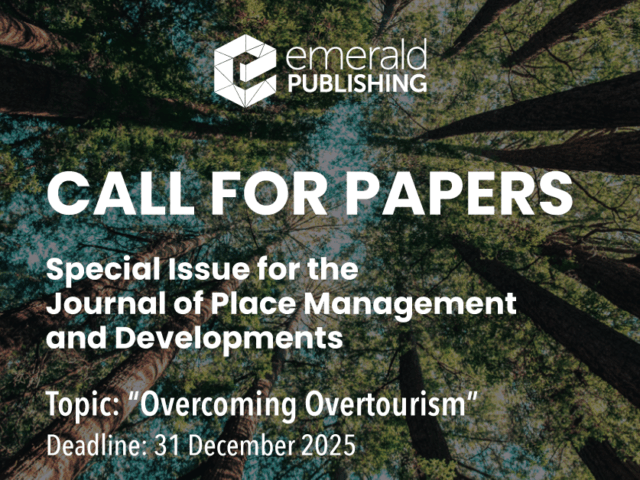
CALL FOR PAPERS
Special Issue for Place Management and Development
Topic: Overcoming Overtourism:
Are Proximity-based Tourism and Bottom-up Approaches able to both enhance Cultural Heritage and foster place-based innovation?
Deadline for Abstract submission: December, 31 2025
Guest editor(s): Dr. Francesca Bragaglia, Dr. Luca Tricarico, Dr. Fabrizio Aimar
Call for Papers “Overcoming Overtourism: are Proximity-based Tourism and Bottom-up Approaches able to both enhance Cultural Heritage and foster place-based innovation?”
Journal:
Journal of Place Management and Development (JPMD)
Special Issue Topic:
Overtourism has emerged as a critical concern in public, political, and academic discourse due to its adverse impacts on regions and local communities. Addressing overtourism has become central to the management policies of numerous UNESCO World Heritage sites and cultural landscapes more broadly. The issue has also gained prominence in public debate, exemplified by events such as the protests against tourists in Barcelona. These dynamics underscore the urgency of exploring potential solutions, including the promotion of proximity tourism and approaches that actively involve local inhabitants in co-designing strategies to mitigate the negative effects of mass tourism. Among the proposed alternatives are forms of tourism characterized by slow, place-based, and bottom-up approaches.
Proximity tourism, however, extends beyond the notion of physical closeness, instead encouraging individuals to reinterpret their familiar surroundings from new perspectives. This approach challenges traditional definitions of tourism by fostering innovative forms of territorial appeal and livability, especially in rural and remote areas, while creating new forms of competitiveness vis-à-vis urban centers. Technological advancements and shifts in work paradigms further contribute to this transformation, prompting a reconsideration of tourism beyond conventional attractions like museums. Moreover, the integration of innovative technologies in rural tourism has demonstrated potential to enhance visitor experiences and appeal to diverse demographics, thereby bridging the gap between rural and urban tourism dynamics.
However, these opportunities are not without challenges, as proximity tourism also raises questions regarding the (un)attractiveness of near-home destinations and the risk of folklorization, particularly over the medium to long term.
This special issue aims to critically examine proximity tourism as a potential alternative to overtourism through socially innovative and participatory frameworks. While existing literature often highlights its benefits — such as fostering local economies, promoting sustainable travel, and facilitating cultural exchange — this issue seeks to probe its complexities, contradictions, and potential risks, including its possible role as a ‘Trojan horse.’ We invite contributions to this special issue that critically engage with proximity tourism by examining:
- Strategies, plans, and organizational models that address its economic, social, and environmental dimensions.
- Case studies analyzing trade-offs, risks, and opportunities in proximity tourism practices. Innovative practices that illustrate how proximity tourism can sustainably transform communities.
- Theoretical perspectives exploring the inherent tensions and contradictions of proximity tourism.
- Empirical research on participatory frameworks and socially innovative approaches to tourism development.
- Critical analyses of proximity tourism’s potential as both a solution to overtourism and a possible source of new challenges.
Submissions should aim to illuminate proximity tourism’s capacity to balance sustainability with inclusivity while addressing its complex impacts on local communities and cultural landscapes.
List of topic areas
Here are some suggested topic areas:
1. Proximity Tourism and Cultural Heritage
- The role of proximity tourism in preserving and revitalizing cultural heritage sites.
- Case studies of successful proximity tourism initiatives that have contributed to the sustainable management and conservation of cultural heritage.
- Innovative strategies for integrating cultural heritage into proximity tourism experiences, with an emphasis on community engagement and participatory governance.
2. Urban and Rural Regeneration
- The impact of proximity tourism on urban regeneration, particularly in post-industrial cities or regions facing economic decline.
- Approaches to rural regeneration through proximity tourism, focusing on remote and less-known destinations.
- The development of new cultural and tourism infrastructures as part of broader urban and rural regeneration strategies.
3. Social Innovation and Community-Based Approaches
- The role of social innovation in proximity tourism, including community-led tourism models and cooperative ventures.
- Examining the impact of proximity tourism on local communities, including social equity, inclusion, and cultural identity.
- Best practices in participatory governance and stakeholder engagement in proximity tourism projects.
4. Sustainable Economic Development
- Proximity tourism as a tool for local economic development, including job creation, SME growth, and sustainable business models.
- Analysis of the economic impacts of proximity tourism on SMEs in cultural and creative industries.
- The intersection of proximity tourism and circular economy principles, focusing on resource efficiency and environmental sustainability.
- Policy frameworks that support the growth of proximity tourism while ensuring sustainable development and heritage conservation.
- The role of public–private partnerships in fostering innovative proximity tourism initiatives.
5. New Visions for Inland and Rural Tourism
- Acceptable limits between change and permanence for community-based development.
- The role of sustainable tourism in the sustainable development of rural communities.
- Integrity and authenticity in relation to tourism and the sense of place.
- Tourism and landscape resilience: tangencies and/or divergences.
- Folklorization and commercialization: critiques and alternatives to the aestheticization of places.
Guest Editors:
Dr. Francesca Bragaglia · Dr. Luca Tricarico · Dr. Fabrizio Aimar
Submission Information:
Submissions via ScholarOne Manuscripts: https://mc.manuscriptcentral.com/jpmd
Please follow the journal’s author guidelines: JPMD Author Guidelines
Important: During submission, select the Special Issue title in response to “Please select the issue you are submitting to.”
Submitted articles must be original, not previously published, and not under consideration elsewhere.
Key Deadlines:
- Opening date for manuscript submissions: 15 February 2025
- Closing date for manuscript submissions: 31 December 2025
Contacts and information:
For expressions of interest and queries, please contact the Guest Editors.
Full papers must be submitted through the journal submission site (link above).

